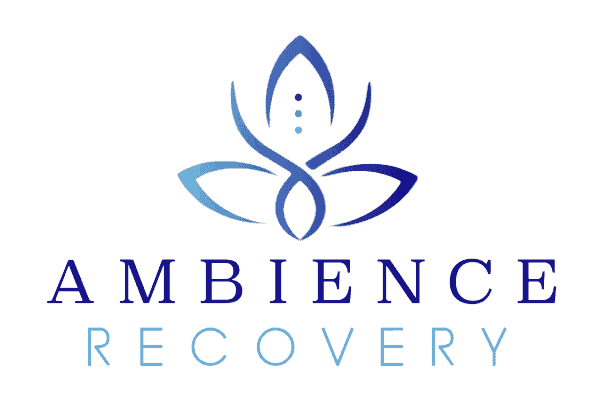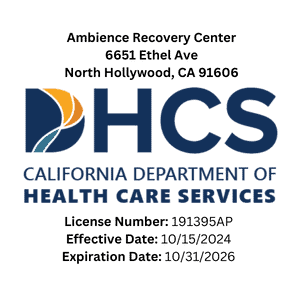10 Signs Someone May Need Addiction Rehab: Relapse Prevention Strategies
Key Takeaways
| Loss of Control: | Inability to stop using substances despite negative consequences. |
| Tolerance & Withdrawal: | Increased use and physical symptoms when not using. |
| Neglected Responsibilities: | Decline in work, school, or personal duties. |
| Behavioral Changes: | Isolation, secrecy, and mood swings are common. |
| Health and Financial Decline: | Noticeable physical deterioration and financial problems. |
| Failed Attempts to Quit: | Repeated, unsuccessful efforts to stop using drugs or alcohol. |
It is a disease that affects every part of a person’s life and is not easy to overcome. If you have a friend or a family member that you think might have an addiction problem, some signs can tell you whether they may require professional help.
Understanding Addiction
What is Addiction?
Addiction is a complex and chronic disease that profoundly affects an individual’s brain, behavior, and overall well-being. It is characterized by the compulsive use of substances or engagement in behaviors despite the negative consequences. Addiction can manifest in various forms, including substance use disorders, such as alcohol or drug addiction, as well as behavioral addictions, like gambling or internet addiction.
This complex issue involves biological, psychological, and environmental factors. Genetics, brain chemistry, and life experiences all play a role in the development of addiction. The impact of addiction extends beyond the individual, affecting relationships, work, and overall quality of life.
Understanding addiction is crucial for developing effective addiction treatment strategies and supporting individuals on their recovery journey. By recognizing the complexities of addiction, we can foster a more compassionate and supportive environment for those affected by this disease.
Here are 10 signs that someone may need to go to an addiction rehab center: It is also important to note that:
1. The inability to quit using even when there are adverse effects that are felt as a result of the substance use
Another clear indication that an individual may require rehab is if they keep using drugs or alcohol, even if they are aware of the adverse effects that come with drug or alcohol use. No matter if it is job issues, relationship issues, or health issues, they cannot stop even though their life is being impacted. This is an indication of poor control over substance use.
2. Increasing Tolerance
Over time, the individual may require more and more of the substance or alcohol to get the same level of ‘high.’ This is referred to as tolerance. They may not achieve the same level of pleasure or the ‘high’ that they used to get from the substance, and therefore, they may use it more often or in large quantities.
3. Experiencing Withdrawal Symptoms
The person may also have withdrawal symptoms when they attempt to reduce or stop the use of the substance. Some of the symptoms that are associated with this condition include trembling, sweating, nausea, dizziness, headaches, anxiety, irritability, and, in severe cases, seizures. This is a clear indication of physical dependence, and it may be necessary to seek medical assistance to detoxify the body.
4. Neglecting Responsibilities
A person who is battling with addiction may start missing out on duties at home, work, or school. They may begin to miss important dates, neglect family duties, or even miss work. This is because they are more concerned with getting a substance and using it; other aspects of life are not well taken care of.
5. Behavior, Emotional Symptoms, and Coping Skills
It is also important to note that addiction alters the behavior and mood of an individual in a noticeable manner. The person may start hiding things, lie about their activities, or stay away from friends and family. You may also experience mood changes, such as being easily irritated or feeling down most of the time. These are the emotional and behavioral changes that are usually associated with addiction. These emotional and behavioral changes can also be early signs of emotional relapse, which, if not addressed, can lead to a full relapse.
6. Lack of Interest in Hobbies and Other Activities.
Addicts usually have low or no interest in things that they used to like. Hobbies, communication, and even such mundane things as going out may not be as interesting as before. Their time is spent in search of and using the substance, with no time for other activities.
7. Financial Problems
Substance abuse is expensive and can cause a lot of financial issues. An addict may begin to beg for money, sell personal belongings, or even steal to get money to feed their addiction. If you see that they have lost their job or have a change in their financial status or if they are spending money in a way that is not normal, then they may be suffering from addiction.
8. Legal Issues
Substance users may commit crimes; this can be about their substance use, such as drug possession, or due to the effects of substance abuse, such as DUI or theft. If someone you know is always getting into trouble with the law or has been arrested for drug or alcohol-related offenses, then they may require rehab.
9. Health Problems
Addiction, including alcohol addiction, can cause health issues, both to the physical and mental health of an individual. The person may have sudden weight changes, get sick often, or have severe diseases such as liver or heart diseases. Mental health may also be affected, and the individual may develop symptoms of anxiety, paranoia, or even hallucinations. These are clear signs that one needs the services of a professional to help him or her out.
10. Failed Attempts to Quit
It is common for many people with addiction to know that they have an issue and may try to stop using substances several times. However, such attempts are usually futile, and the person goes back to using the substance if they do not get the right support. If someone has tried to quit but failed to do so and is still unable to stay away from alcohol, then rehab can help.
What are the signs that a person has a substance use disorder and requires to be taken to a rehab center?
Knowing the symptoms of addiction and substance use disorder is important to recognize when it is necessary to turn to specialists for help. Here are some key indicators that someone is a drug or alcohol addict and may need rehab:
Here are some key indicators that someone is a drug or alcohol addict and may need rehab:
Compulsive Use
One of the most obvious symptoms of addiction is the compulsive use of the substance. A drug or alcohol addict will keep on using the substance despite the negative consequences that it has on their family, work, or even their health. The substance takes over as the most important aspect of their life, and they will do anything to get it. Compulsive use often occurs in high-risk situations where the temptation to use substances is heightened.
Behavioral Changes
Addicts are known to have some major changes in their behavior. They may start hiding their activities; for instance, they may lie about their substance use or avoid spending time with family and friends. The addiction may also lead to changes in the company they keep since they may start hanging out with people who use substances or encourage substance use.
Physical and Psychological Dependence
As addiction progresses, the individual becomes physically dependent on the substance, which means that they are unable to go through the day without it. They may also experience psychological withdrawal symptoms, including the urge, anxiety, depression, or paranoia when they do not use it. Psychological dependence can also lead to mental relapse, where the individual experiences cravings and thoughts about past substance use.
Increasing Isolation
Addicts may also withdraw from friends and family members and stay away from society to conceal their substance abuse. If they begin to cut off contact with friends and family and spend more time alone, this may be a sign of addiction. Isolation can be particularly challenging during early recovery when individuals are adjusting to a new lifestyle without substances.
Loss of Control
Another characteristic of addiction is the lack of control over substance use. Someone may have told their doctor that they would reduce or quit, but they still do it. This lack of control is a clear sign that one needs the services of a rehab center.
Health Deterioration and Long-term Recovery
It is a known fact that addiction affects the body in many ways. Drug or alcohol addicts are likely to suffer from various ailments, such as frequent diseases, changes in weight, and organ diseases. Substance abuse affects the immune system of the body and thus makes the body more vulnerable to diseases. Maintaining a healthy diet is crucial for the body’s recovery and well-being.
Relapse Prevention and Treatment
Mindfulness-Based Relapse Prevention
Mindfulness-based relapse prevention (MBRP) is an innovative treatment approach that combines mindfulness techniques with cognitive-behavioral therapy to help individuals prevent relapse. MBRP is grounded in the idea that mindfulness can enhance awareness of thoughts, feelings, and behaviors, enabling individuals to make more intentional choices about their substance use.
Typically, MBRP involves sessions focused on teaching mindfulness skills, such as meditation and deep breathing, alongside cognitive-behavioral techniques like identifying and challenging negative thought patterns. The goal is to cultivate greater self-awareness and self-regulation, thereby reducing the risk of relapse.
Research indicates that MBRP can be an effective treatment for individuals with substance use disorders, especially when integrated with other forms of treatment, such as medication-assisted therapy. By incorporating mindfulness-based relapse prevention into their recovery plan, individuals can develop robust strategies to prevent relapse and maintain long-term sobriety.
Importance of Professional Treatment
Professional treatment is essential for individuals grappling with addiction. While some may manage to recover independently, many require the support and guidance of trained therapists or counselors to achieve long-term recovery.
Professional treatment equips individuals with the tools and strategies needed to overcome addiction. This can include cognitive-behavioral therapy, medication-assisted therapy, and other tailored treatments that address the individual’s needs. Additionally, professionals can help develop a comprehensive relapse prevention plan, which is crucial for maintaining sobriety.
Beyond treatment, professionals at addiction centers like Ambience Recovery offer ongoing support and guidance throughout the recovery process. This includes assisting individuals during crises, providing emotional support, and connecting them with community resources and services.
Overall, professional inpatient treatment is a critical component of the recovery journey, playing a pivotal role in helping individuals achieve and sustain long-term recovery from addiction. By seeking professional help, individuals can access the necessary resources to prevent relapse and rebuild a healthy, fulfilling life.
Frequently Asked Questions (FAQ)
Q: What should I do if I think someone needs rehab?
A: If you believe someone is struggling with addiction, it’s important to approach them with care. Encourage them to seek professional help and offer your support. Sometimes an intervention, with a professional’s help, can effectively convince the person to enter rehab.
Q: Can someone quit drugs or alcohol on their own?
A: While some people can quit on their own, addiction is often too complex to overcome without professional support. Rehab programs like those offered by Ambience Recovery provides medical care, counseling, and a structured environment to help individuals detox and develop coping strategies for long-term sobriety.
Q: How long does rehab usually last?
A: The length of rehab varies depending on the severity of the addiction and the individual’s needs. Some programs last 30 days, while others may extend to 60 or 90 days. Long-term rehab options are also available for those who need extended care.
Q: What happens during rehab?
During rehab, individuals undergo detoxification to rid the body of the substance, followed by therapy sessions that address the underlying causes of addiction. They also learn coping mechanisms and relapse prevention strategies to help them maintain sobriety after treatment. Therapy sessions also focus on addiction relapse prevention, equipping individuals with strategies to maintain long-term sobriety.
Q: How do I know if rehab is the right choice for relapse prevention?
A: If the person is unable to stop using drugs or alcohol on their own, has experienced multiple failed attempts to quit, and their life is negatively impacted by substance use, rehab is likely the best option. A professional assessment can provide more clarity on whether rehab is necessary.
Recognizing the signs of addiction early can save a life. If you notice any of these indicators in yourself or a loved one, it may be time to consider rehab. Seeking help is the first step toward recovery and rebuilding a healthy, fulfilling life.
If you or someone you love is experiencing issues with addiction, please call (866) 721-7470.
A Guide to Substance Abuse Services for Primary Care Clinicians – NIH.Gov
https://www.ncbi.nlm.nih.gov/books/NBK64815/
Drug addiction (substance use disorder) – MayClinic.org
https://www.mayoclinic.org/diseases-conditions/drug-addiction/symptoms-causes/syc-20365112
Katie is a Licensed Clinical Social Worker who has worked as a primary therapist, supervisor, and now clinical director for SUD/MH treatment centers for the past 12 years. Katie is trained in Brainspotting, EMDR, Internal Family Systems and Dialectical Behavior Therapy and is passionate about treating substance use disorders, trauma and grief.






